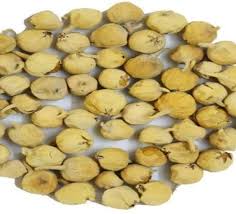Jadi Buti: A Herbal Approach to Managing Blood Pressure | Dirghaanshi
Introduction
Managing blood pressure is crucial for overall health, and a natural approach using herbs can be an effective way to support cardiovascular health. Jadi Buti (herbal medicine) has long been used in traditional medicine for its ability to regulate and stabilize blood pressure. With a variety of powerful herbs like Ashwagandha, Garlic, Hibiscus, and Hawthorn, you can take control of your blood pressure naturally. In this article, we explore how these Jadi Buti herbs can play a key role in maintaining a healthy blood pressure level.
Long Description
🌿 1. Ashwagandha - The Adaptogen for Stress Relief
Ashwagandha is a powerful adaptogenic herb that helps to regulate cortisol levels and manage stress, which is one of the major contributors to high blood pressure. By reducing stress and promoting relaxation, Ashwagandha can help lower blood pressure naturally. Additionally, it has been shown to enhance overall cardiovascular health by improving circulation and heart function. Including Ashwagandha in your daily routine can be beneficial for individuals who experience blood pressure spikes due to stress or anxiety.
🌱 2. Garlic - A Natural Blood Pressure Regulator
Garlic has been used for centuries as a natural remedy for various health issues, including blood pressure. The active compound allicin in garlic is known for its ability to relax blood vessels, improve circulation, and reduce overall blood pressure. Regular consumption of garlic has been shown to reduce both systolic and diastolic blood pressure levels. It also has a heart-healthy effect by reducing cholesterol and preventing plaque buildup in the arteries, making it an excellent herb for managing blood pressure.
🌿 3. Hibiscus - The Heart-Healthy Herb
Hibiscus is rich in antioxidants and known for its ability to help regulate blood pressure. Studies have shown that drinking Hibiscus tea can significantly lower blood pressure in individuals with mild to moderate hypertension. The flavonoids and anthocyanins in Hibiscus help relax blood vessels and improve blood circulation. Incorporating Hibiscus into your diet can be a great way to support healthy blood pressure levels and promote overall heart health.
🌱 4. Hawthorn - The Cardiovascular Tonic
Hawthorn has long been used in herbal medicine for its positive effects on heart health. It is known for its ability to improve blood flow, strengthen the heart, and reduce blood pressure. Hawthorn contains flavonoids and other bioactive compounds that help relax the blood vessels, improve circulation, and reduce arterial stiffness. Regular use of Hawthorn can contribute to better heart function and help manage high blood pressure naturally.
🌿 5. Cinnamon - The Blood Pressure Balancer
Cinnamon is not just a flavorful spice but also an effective herb for managing blood pressure. Studies have found that Cinnamon can help lower both systolic and diastolic blood pressure by improving insulin sensitivity and enhancing blood vessel function. Its rich antioxidant properties also help reduce inflammation, which is crucial for maintaining healthy blood vessels and optimal blood pressure levels.
🌱 6. Flaxseeds - The Omega-3 Rich Herb for Heart Health
Flaxseeds are an excellent source of omega-3 fatty acids, which are essential for cardiovascular health. These healthy fats help to lower blood pressure by reducing inflammation and improving blood flow. Flaxseeds also contain lignans and fiber, which contribute to heart health by reducing cholesterol and promoting a healthy weight. Adding Flaxseeds to your diet can help regulate blood pressure and provide long-term cardiovascular benefits.
🌿 7. Cardamom - The Flavorful Herb for Blood Pressure Control
Cardamom is an aromatic spice commonly used in Ayurvedic medicine for its blood pressure-lowering properties. It helps relax the blood vessels and improve circulation, which can lead to lower blood pressure. Cardamom also has antioxidant properties that help combat oxidative stress, which is a contributing factor to high blood pressure and heart disease. Incorporating Cardamom into your diet or herbal teas can be an easy and effective way to manage your blood pressure.
🌱 8. Ginger - The Anti-inflammatory Herb
Ginger is well known for its anti-inflammatory and antioxidant properties, which help reduce the risk of chronic diseases, including hypertension. Ginger helps improve blood circulation, relax the blood vessels, and reduce blood pressure. It also has a beneficial effect on cholesterol levels and can reduce the formation of arterial plaque. Adding Ginger to your diet or consuming it as tea can have a positive impact on your blood pressure and overall cardiovascular health.
🌿 9. Olive Leaf - The Antioxidant Herb for Healthy Blood Pressure
Olive Leaf is rich in oleuropein, a powerful antioxidant that helps lower blood pressure by improving blood vessel function and reducing inflammation. Studies have shown that Olive Leaf extract can reduce systolic and diastolic blood pressure, making it an effective natural remedy for hypertension. Including Olive Leaf in your herbal regimen can help regulate blood pressure while promoting heart health and longevity.
🌱 10. Lavender - The Relaxing Herb for Stress Reduction
Lavender is widely known for its calming and relaxing properties. When it comes to managing blood pressure, Lavender helps reduce stress and anxiety, which are common triggers for high blood pressure. Lavender essential oil or tea can be used to promote relaxation, improve sleep quality, and manage blood pressure. By incorporating Lavender into your lifestyle, you can naturally lower your blood pressure and support overall cardiovascular health.
Conclusion
Taking a Jadi Buti approach to managing blood pressure is an effective and natural way to improve heart health. Herbs like Ashwagandha, Garlic, Hibiscus, and Hawthorn offer powerful, scientifically-backed benefits that help regulate blood pressure and promote cardiovascular well-being. By incorporating these herbs into your diet or daily routine, you can support healthy blood pressure levels and improve your overall health. Always consult with a healthcare provider before making any significant changes to your health regimen, especially if you are currently on medication.












